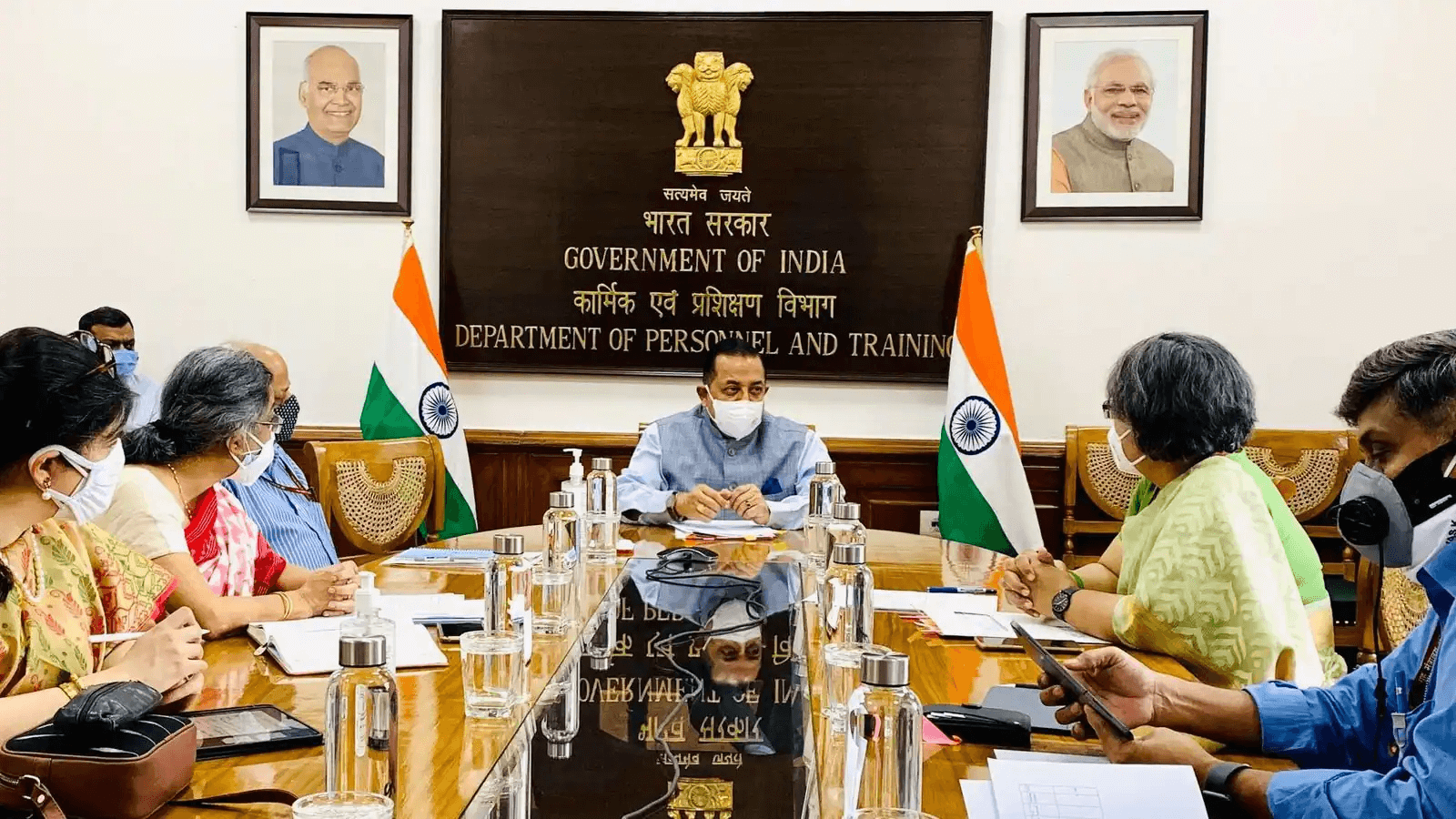
In the realm of public administration in India, interactions between employees and public servants are governed by a robust framework of laws, rules, and judicial precedents designed to ensure accountability, transparency, and fairness. A common issue that arises is whether a public servant can lawfully refuse to accept a letter from an employee, particularly when the letter pertains to official matters such as grievances, service-related requests, or appeals. Such refusals can have significant implications for employees’ rights and the functioning of public institutions.
Legal Framework Governing Public Servants and Employee Communications

Public servants in India, whether employed by the central or state government, operate under a well-defined legal and regulatory framework that dictates their conduct and responsibilities. The following laws and rules are particularly relevant to the issue of refusing an employee’s letter:
1. Central Civil Services (Conduct) Rules, 1964
– Rule 3: This rule mandates that every government servant maintain absolute integrity, devotion to duty, and act in a manner befitting their position. Refusing to accept an official letter from an employee without a valid reason could be construed as a dereliction of duty or misconduct.
– Rule 23: This prohibits public servants from engaging in conduct that obstructs the legitimate exercise of rights by others, including an employee’s right to submit representations or grievances.
2. Constitution of India
– Article 311: This constitutional provision safeguards government employees against arbitrary actions, ensuring they receive a reasonable opportunity to be heard. A public servant’s refusal to accept a legitimate letter, such as an appeal against disciplinary action, could infringe this protection.
– Article 14: The right to equality before the law implies that public servants must handle employee communications fairly and without discrimination.
3. Right to Information Act, 2005
– If the letter pertains to an RTI request, Section 5(2) mandates that designated public information officers (PIOs) accept and process such communications. Refusal without justification could violate the RTI Act, attracting penalties under Section 20.
4. Service Rules and Departmental Guidelines
– Most government departments have specific protocols for receiving and processing employee communications, such as grievances, applications for leave, or requests for promotion. These protocols are binding on public servants, and refusal to comply may constitute a breach of administrative discipline.
5. Principles of Natural Justice
– Indian administrative law is rooted in the principles of natural justice, which require public servants to act fairly, transparently, and without bias. Refusing a letter without valid reason could violate the audi alteram partem rule (the right to be heard), rendering the action legally untenable.
Supreme Court Judgments on Public Servants’ Conduct and Employee Rights

The Supreme Court of India has consistently upheld the principles of fairness, accountability, and due process in matters involving public servants and employee communications. The following landmark judgments illuminate the legal position on whether a public servant can refuse a letter from an employee:
1. Union of India v. Tulsiram Patel (1985)
– Citation: AIR 1985 SC 1416
– Facts: This case involved the dismissal of government employees without a proper inquiry. The employees argued they were denied a fair opportunity to present their case.
– Ruling: The Supreme Court held that public servants must adhere to the principles of natural justice, including providing employees a reasonable opportunity to be heard. Refusing to accept a letter containing a grievance or appeal could violate this principle, effectively denying the employee’s right to representation.
– Relevance: If a public servant refuses a legitimate letter, such as an appeal against disciplinary action, the action could be challenged as arbitrary and violative of Article 311.
2. State of Punjab v. Jagdip Singh (1964)
– Citation: AIR 1964 SC 521
– Facts: This case dealt with the failure of public authorities to follow prescribed procedures in handling employee matters.
– Ruling: The Court emphasized that public servants must act within the scope of their authority and adhere to procedural norms. Arbitrary refusal to accept an employee’s letter could be construed as an abuse of power, subject to judicial review.
– Relevance: A public servant refusing a letter without citing valid procedural grounds risks having their action struck down as unlawful.
3. L.K. Verma v. HMT Ltd. & Anr. (2006)
– Citation: (2006) 2 SCC 269
– Facts: The petitioner challenged the inaction of public authorities in addressing his service-related representation.
– Ruling: The Supreme Court ruled that public servants have a duty to handle employee representations promptly and fairly. Failure to do so, including refusal to accept a letter, could be deemed arbitrary and violative of administrative law principles.
– Relevance: This judgment underscores the obligation of public servants to accept and process legitimate employee communications, reinforcing the employee’s right to redressal.
4. Dr. Upendra Nath v. State of Uttar Pradesh (1997)
– Citation: (1997) 10 SCC 219
– Facts: The case involved the failure of public authorities to consider an employee’s representation regarding service conditions.
– Ruling: The Court held that administrative actions must be transparent, justifiable, and in accordance with prescribed procedures. Refusing a letter without valid reason could attract judicial scrutiny under Article 226 or 32 of the Constitution.
– Relevance: Employees can seek judicial intervention if a public servant’s refusal to accept a letter infringes their rights.
5. Dev Dutt v. Union of India (2008)
– Citation: (2008) 8 SCC 725
– Facts: The petitioner challenged the non-communication of adverse entries in his performance appraisal, which affected his promotion.
– Ruling: The Supreme Court held that public servants must act transparently and communicate decisions to employees. Refusal to accept a letter seeking clarification or redressal could violate the principles of fairness and transparency.
– Relevance: This case emphasizes that public servants cannot arbitrarily obstruct employee communications, particularly those related to service conditions.
Circumstances Under Which Refusal May Be Justified
While public servants are generally obligated to accept official communications, there are limited circumstances where refusal may be justified:
1. Non-Compliance with Procedure
– If the letter is submitted outside prescribed channels (e.g., bypassing the grievance cell or using an incorrect format), the public servant may refuse it but must inform the employee of the correct procedure.
2. Irrelevant or Inappropriate Content
– If the letter contains personal, defamatory, or irrelevant content, the public servant may refuse to accept it, provided they document the reason and report it to the appropriate authority.
3. Jurisdictional Limits
– If the letter falls outside the public servant’s authority or department, they may redirect the employee to the appropriate officer or office.
However, even in these cases, the refusal must be reasoned, documented, and communicated to the employee to avoid accusations of arbitrariness.
Consequences of Unjustified Refusal
If a public servant refuses to accept a legitimate letter without valid reason, they may face the following consequences:
1. Disciplinary Action
– Under the Central Civil Services (Conduct) Rules, 1964, or equivalent state rules, the public servant could face disciplinary proceedings for misconduct or dereliction of duty.
2. Judicial Review
– The employee can challenge the refusal by filing a writ petition under Article 226 (High Court) or Article 32 (Supreme Court), citing violation of constitutional rights or principles of natural justice.
3. Administrative Remedies
– The employee can escalate the matter to the public servant’s superior, the departmental grievance cell, or the Central Administrative Tribunal (CAT) for central government employees.
4. Penalties under RTI Act
– If the letter pertains to an RTI request, refusal could attract penalties under Section 20 of the RTI Act, including fines up to Rs 25,000.
Actionable Steps for Employees Facing Refusal
Employees facing refusal of a letter by a public servant can take the following steps to protect their rights and seek redressal:
1. Resubmit Through Formal Channels
– Send the letter via registered post, speed post, or email to the public servant or their office, ensuring proof of submission (e.g., postal receipt or email delivery confirmation).
– Verify the correct submission process as outlined in departmental guidelines or service rules.
2. Document the Refusal
– Record details of the refusal, including the date, time, name of the public servant, and any stated reason for refusal.
– If possible, obtain a written acknowledgment of the refusal or have a witness present.
3. Escalate to Higher Authorities
– File a complaint with the public servant’s superior or the departmental grievance redressal mechanism, citing relevant rules (e.g., CCS Conduct Rules) and Supreme Court judgments (e.g., Tulsiram Patel or L.K. Verma).
– For central government employees, approach the Central Administrative Tribunal (CAT) with an application under Section 19 of the Administrative Tribunals Act, 1985.
4. Seek Judicial Intervention
– If administrative remedies fail, file a writ petition under Article 226 in the High Court or Article 32 in the Supreme Court, alleging violation of constitutional rights (e.g., Article 14 or 311) or principles of natural justice.
– Cite relevant Supreme Court judgments, such as Union of India v. Tulsiram Patel or Dev Dutt v. Union of India, to strengthen the case.
5. File an RTI Application (if applicable)
– If the letter pertains to seeking information, resubmit it as an RTI application under Section 6 of the RTI Act.
– If refused again, appeal to the First Appellate Authority and, if necessary, the Central Information Commission.
6. Consult a Legal Expert
– Engage an advocate specializing in service law to review the case and prepare legal documents, ensuring compliance with procedural requirements and deadlines.
Practical Considerations for Employees
To avoid refusals and ensure effective communication, employees should:
– Adhere ta Protocols: Verify the correct procedure for submitting letters, as outlined in departmental guidelines or service rules.
– Maintain Professionalism: Ensure the letter is formal, concise, and relevant to the public servant’s jurisdiction.
– Keep Records: Retain copies of the letter, proof of submission, and any correspondence related to the refusal.
– Act Promptly: Adhere to timelines for filing grievances or appeals, as delays may weaken the case.
Conclusion

A public servant’s ability to refuse a letter from an employee is highly circumscribed under Indian law. The Central Civil Services (Conduct) Rules, 1964, constitutional provisions such as Articles 14 and 311, and Supreme Court judgments like Union of India v. Tulsiram Patel (1985) and L.K. Verma v. HMT Ltd. & Anr. (2006) establish that public servants must handle employee communications with diligence, fairness, and transparency. Arbitrary refusal to accept a legitimate letter could constitute misconduct, violate principles of natural justice, and invite administrative or judicial consequences.
Employees facing such refusals have multiple avenues for redressal, including resubmission through formal channels, escalation to higher authorities, and judicial intervention. By following prescribed procedures, documenting refusals, and leveraging legal precedents, employees can protect their rights and hold public servants accountable. As public administration continues to evolve, adherence to the rule of law and judicial guidance remains paramount in ensuring a fair and equitable workplace.


Sir
Very informative and useful article